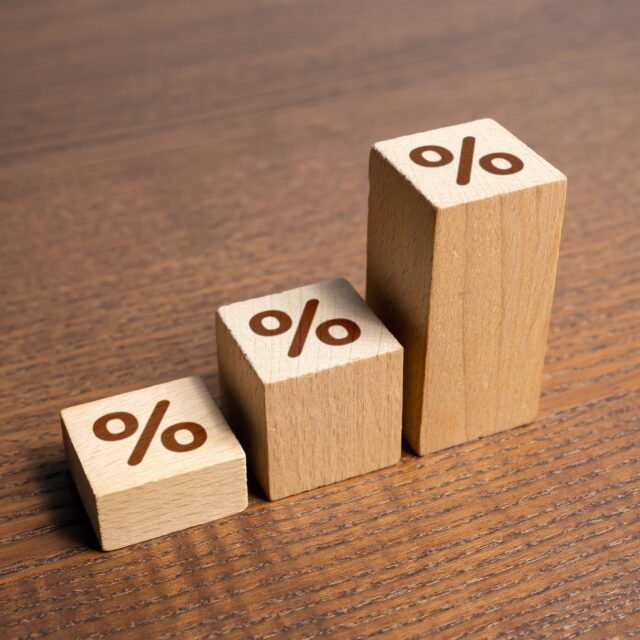Pound in your pocket
Almost half a century ago, Prime Minister Harold Wilson told the country: "From now the pound abroad is worth 14% or so less in terms of other currencies. It does not mean, of course, that the pound here in Britain, in your pocket or purse or in your bank, has been devalued.”
Almost half a century ago, Prime Minister Harold Wilson told the country: “From now the pound abroad is worth 14% or so less in terms of other currencies. It does not mean, of course, that the pound here in Britain, in your pocket or purse or in your bank, has been devalued.”
Since the EU referendum, the pound has fallen by 17% against the dollar ; more than the Wilson devaluation and the aftermath of Black Wednesday ERM debacle in 1992. Just as on those occasions, we need to get the causes straight to understand the consequences. And when politicians tell you not to worry about the pound in your pocket, you might want to check your wallet.
First, there’s no doubt that the recent fall in the pound is connected to Brexit. The first leg down followed the day of the referendum and the second leg down came as it became clear that the UK may be heading for a ‘hard Brexit’. Arguing that it was inevitable and overdue and not connected to Brexit is spurious at best.
Second, there has been some good news as well. The stock market, even the shares of domestic companies, have risen in value to well above levels seen before the referendum. Admittedly this is with the help of the Bank of England, but that’s what they’re there for.
So what has really changed since June 23rd? We are certainly none the wiser about the eventual divorce settlement, let alone what our relationship with the EU might be thereafter. But we do know that the fall in the pound will make the cost of the goods we import – from tea to iPhones – more expensive.
This week we have seen the first sign of rising food prices. We import about half of the food we eat, with one quarter coming from the continent. But the headlines about the rising price of Marmite, made in the UK, are more surprising. This is a reminder that these markets aren’t perfect. Manufacturers, shops and customers will fight it out over who squeezes their margins and who pays higher prices.
A sad irony is that those who are said to have been ‘left behind’ by globalisation – and who were most likely to vote for Brexit – are likely to have a larger share of food in their weekly budget. They will disproportionally lose out once again from the higher food prices.
Energy prices will be the next import price to rise, so expect higher heating bills and petrol prices. And because even goods that are ‘made in the UK’ often contain some import content, or at least involve energy in their distribution, there may also be some upward pressure on domestic prices.
But whether this increase in prices leads to a prolonged rise in inflation is quite another question. This depends on what caused the fall in the pound in the first place.
Forty years ago The Economist newspaper coined the term ‘Dutch disease’ to describe how finding a natural resource can actually damage the competitiveness of a country. The Dutch discovered oil which led to an increase in demand for guilders. The higher exchange rate and attraction of resources into the oil sector eroded the competitiveness of the rest of the economy.
And one thing that looks increasingly likely is that Brexit is going to be bad news for financial services – one of our very best export industries. When the UK leaves the EU, and more importantly the European Economic Area, which is the legal boundary for access to EU financial markets, the so-called ‘hard Brexit’ outcome, then the outlook for financial services is bleak indeed.
Try as they might, there is no easy way around this. The notion that a global financial centre like London can effectively mimic EU regulations – with no say – is unsustainable. A much more imaginative solution is required.
Losing much of our financial sector is a ‘Dutch disease’, but in reverse. Exports of wholesale financial services are like commodities: they do not take a large amount of domestic labour and they depend on foreign direct investment for development. We are by far the largest exporter in the world but we are about to lose part of the industry.
So what happens next? The loss of some financial services will lead to a loss of domestic incomes and investment. But this will be offset, at least in part, by an increase in demand for our other exports from the fall in the pound and lower export prices.
Governments have wanted to “rebalance” the UK economy away from the City and towards manufacturing. This might just happen now, but the at the cost of arguably our most successful economic sector. Of course, whether the loss from financial services is greater or less than the gain from other exports is hard to tell –and the transition could be painful, especially given how much the City pays in taxes.
But what this does mean is that the one-time increase in import prices resulting from the fall in the pound isn’t likely to go along with a sharp rise in demand or a prolonged rise in inflation.
The Bank of England will be watching like hawks. But they are likely to be relaxed about rising prices if they think it’s just a temporary. This would be good news for those of us with mortgages. The fall in the pound is unlikely to lead to a sudden turnaround to higher interest rates.
Under this scenario, higher food prices – not to mention other things – from the fall in the pound are here to stay. But this will be a one-time adjustment. The rise in inflation above the official target is likely to be temporary. Interest rates can remain supportive of the economy.
So – the good news is that the fall in the pound doesn’t mean a return to the inflationary wage-price spirals of the 1970s that followed Harold Wilson’s devaluation. Neither is it likely to unshackle policy and reinvigorate the economy like after Black Wednesday. Instead, it looks like a necessary adjustment to life outside the EU.
But there’s a downside. A rise in prices, with no corresponding rise in wages, simply means we will be poorer. Our standard of living will be lower. The UK will regain competitiveness the hard way: not through productivity gains but through lower real wages. The pounds in our pocket will buy less; and we won’t have any more of them.



















